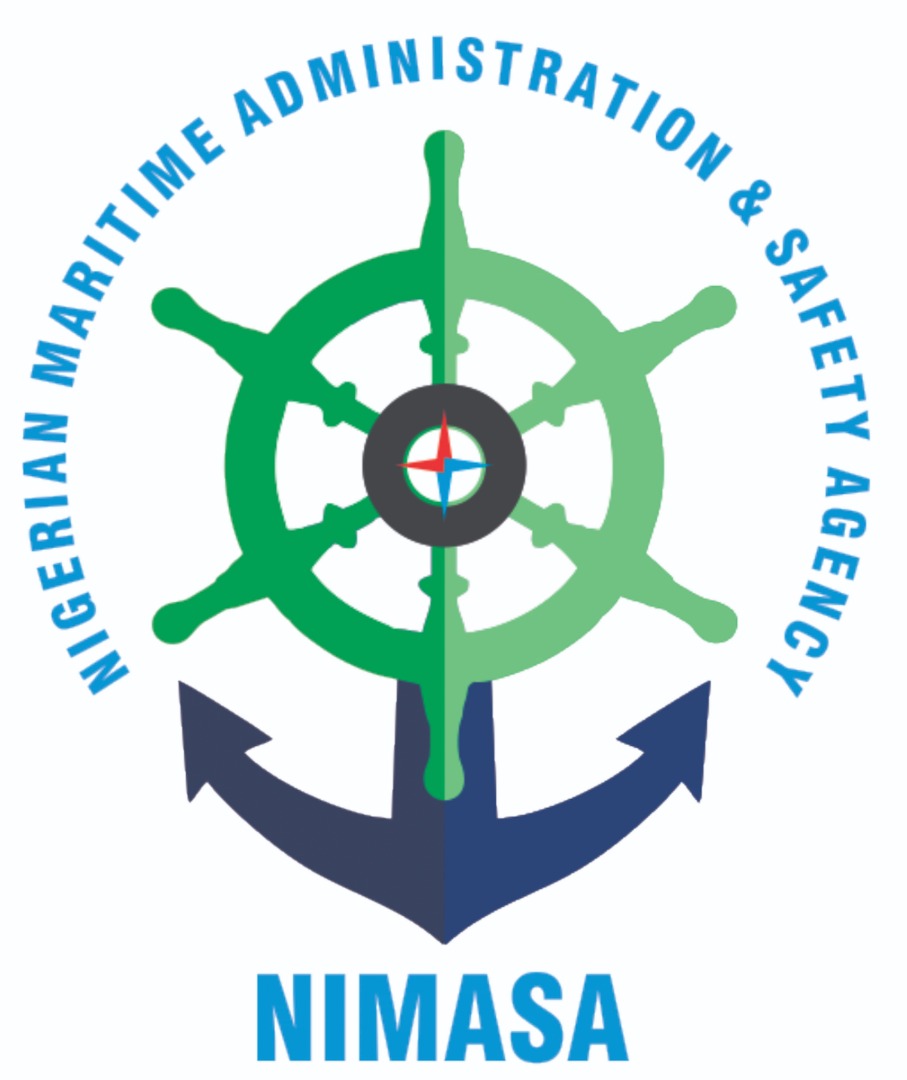
By Godwin Oritse
THE Nigerian Maritime Administration and Safety Agency, NIMASA, has taken delivery of the aerial surveillance equipment to tackle the menace of piracy on the Gulf of Guinea, GoG.
Disclosing this in his Twitter handle, NIMASA’s Director General, Dr. Bashir Jamoh, said that these “Special Mission Helicopters will, alongside the Special Mission Aircrafts and UAV Drone System, collectively constitute the air component of our Integrated Maritime Security architecture.
“We’re committed to policing our waters for our economic prosperity.”
READ ALSOAs under Trump, US report avoids ‘Occupied Territories’
The issue of piracy has become a nightmare for vessels sailing through the Gulf of Guinea as attacks on them have become recurrent, a development that has made European ship owners to either put armed guard on board their vessels or slam war zone charges on such voyages.
PORT DIGITISATION:
I look forward to a brighter future for maritime sector— Hassan Bello
Shippers in Nigeria are faced with diverse challenges including difficult port access roads, illegal charges, and unfriendly cargo clearing procedures, heavy paper documentation in the clearing process, the safety of consignments, and many more.
In this interview with Godfrey Bivbere, the Executive Secretary and Chief Executive Officer of the Nigerian Shippers Council, NSC,Hassan Bello, spoke on actions taken by the Council to address the challenges.
Excerpt:
THERE was a recent case of stealing of a 40-foot cocoa export consignment by a syndicate operating from Ibadan. What is Shippers Council doing about such an incident?
We have to formalise carriage of goods, as it is now, internally, it is not formal. We rely on common law principles which are outdated. We ought to have modern commercial transportation law and so Shippers’ Council has come up with a legislation, a bill on carriage of goods by road and rail, which is that people involved in carriage should be regulated.
Trucking companies
We have to also evolve minimum standards which the Nigerian Ports Authority, NPA, and the Federal Road Safety Corps, FRSC, are doing. When you do that you will be able to find that instead of multiplicity of and fragments of operators you have about 20 trucking companies; they must be standardised.
Also the Shippers Council is looking for a way to re-fleet or aid renewal of transporters’ fleet of trucks to take away all the old trucks from the roads. But we have to do it when they are organized and structured.
What is happening is informal and my greatest fear is for the maritime sector to fall into the informal sector?
Everything must be standardised, there must be a contract of carriage between the owner of the cargo and the transporter; there must be insurance and other obligations arising to the individuals. If now you have a truck and I say bring this crate of egg from Port Harcourt to Kaduna and there was an accident and everything perishes, there is no compensation, there is nothing.
People will say it is God’s will but it is not true. Investors fear investing in Nigeria because there is no law, standard bill to say this is a contractual relationship between the owner of the transport and the user of the transport system.
Before that law comes into effect what happens to the shippers, or the exporter in case of the incidence I cited earlier. Exporters must be very careful in the sense that they should know who they entrust their cargo to. They should have a contract with them, I know because access to the port has become a problem, which we hope to see ending around March this year with the rail and others; but you still find pockets of issues of informal issues.
So exporters should be very careful and know who they entrust their cargo to.
Another issue is that of movement of cargo by barges, there are so many illegal activities going on?
Yes, there are because there is nobody to look at them and that is why we said that there is the need for the regulation and standards being developed by FRSC and NPA. For barges, it is a welcome development but it is unregulated and we have set up a committee, made up of NPA, NIWA, and NSC to look at these issues.
Barges are not regulated, which is dangerous; you don’t know the specifications of the barges, the load they could carry, if there is any insurance, if they could do that in the night and so many other things are left to the whims and caprices of the operators.
That should not be so; we are having a meeting to come up with regulations. Our concern is the distance; if there is an accident, it is the cargoes that would be affected and maybe some lives, and it is very dangerous. We need to step in but because of COVID-19 a lot of things have stopped right now. We need to step in to make sure things are done right.
How soon are we expecting?
In two weeks’ time, I will let you know what happens.
How much is the estimated sum spent so far as container deposit?
We spent N670 million two years ago on container deposit. It is clumsy and we don’t want that; we want to use the money for more productive activities. People should return containers as at when due. To be honest the contract is frustrated because there is no access to returning these containers. And they charge importers demurrage, which is not fair.
We have looked at what obtains in other countries where you can have it like insurance. It should be insured such that instead of N300,000 we pay as a deposit, you can pay an insurance company N20, 000 and he would ensure your container is returned.
It is because of this hurry; rush to escape demurrage that you see a lot of trucks on the road with empty containers for return.
That regime of empty containers would have to be looked at holistically.
What is NSC doing with regards to Nigeria becoming a dumping site for empty containers, knowing that there is a shortage of empty containers around the world, especially in China?
Shippers Council and NPA are working on a plan that for every container a shipping company brings in you have to take it back otherwise you would not be given a sailing certificate.
Moreover, what we want is that when you bring in an import container, we should also have a loaded container to be taken out. That is aggregating or encouraging export.
All the distortions you see are because of Apapa traffic situation, but now, rail has been connected to Apapa port and we are there with the Nigerian Railway Corporation, NRC, trying to see how there would be massive evacuation of containers by train.
What is the volume of cargo that can be moved from the port through the rail?
It can take 50 percent of all the containers. It is great because it also brings the price level down. There would be competition; the truckers are given the competition, and there are barges also. So you have a multimodal approach to cargo delivery and evacuation. The failure of infrastructure is being addressed by the government, the roads have been fixed. We have creek and Liverpool road, Mile 2 – Oshodi – Tincan Island road. Am sure it is being addressed; we have finished that and you will notice that access to the port is free.
NSC is pushing for digitisation of the port; we have just gotten the latest report that one of the shipping companies has achieved 100 per cent compliance; it used to be 40 per cent. One of the terminals is 98 per cent. One terminal that used to be 18 per cent is now digitalising and they told us that by the end of March they will visit me to see the level of digitalisation there.
NPA is pushing for a port committee system and that is great. The port committee system will enable us to do all these things.
It is not only for terminals to have digitisation, but other users should fit into the integration of the system, where we have a one-stop-shop, where we see everything going on. The banks must be part of it, the Nigeria Customs Service, NCS, must fit in.
Is Customs buying into the digitalisation initiative?
Yes, they are ahead in digitisation; we have the e-Customs; when that is done, everyone is integrated, a lot of things would be easier. I look forward to a bright future for the maritime sector. Even now, we are taking containers from our competitors; Nigeria ports are doing better than their competitors despite COVID-19 and every other thing. There is some level of improvement in operations by terminal operators and the shipping companies, and also the freight forwarders.
When are we seeing the realization of this digitalization?
By end of March, we expect to achieve 90 percent, we may even exceed that.
Vanguard News Nigeria
The post Deep Blue: NIMASA takes possession of aerial surveillance equipment appeared first on Vanguard News.



![[Video Skit] Skelevalency -Tell ichie to leave me](https://blogger.googleusercontent.com/img/a/AVvXsEjmG7Wl_4XVI78hdj5MzSppE7WL04gpgSFZn8DLQt8cZ2Fjjfzxrqocmn8DBlJEJiyP3rboZshGzbYXTeUJMnGeTJoLJDTvcMxx-w8ZtfX5exeYQuBW5LYw_Q7WEYRJcH0QP3NH12P15g4fvZajNejqhSNlmb1HneOuzqHsZgzrl25yrF_4s2EFxgixqg=w680)

![[Music] Jakhada - Kana Nan](https://blogger.googleusercontent.com/img/a/AVvXsEjyq50Q27kdxKlzTRdQ2Q2MIDV_loiuSwAA853p27nk6EG4-whzhZ73Y3FvJwm40mrVqqWFhbMR6izOrlXpyhv_Drh5mgMJaJaqvnURqcKye_dDfkLm1q5qI-NUGaIQKJLVJb6vcVmLwe7tcEyFD-AVAF3465k9dIbughUqo9JUWvg7IeOYrLhRMf0isA=w680)
![#BBNaija: Man behind Big Brother’s voice finally shows his face [Video]](https://1.bp.blogspot.com/-5YubWO7KWRE/YVOJnnIByNI/AAAAAAAAEfs/SE8a_zdPx-UbiZNUiSfbrm0ME81BuHFWACLcBGAsYHQ/w680/big-brother.x25186%2B-%2Bnaijamedialog.jpg)
![[MIXTAPE] Dj Deen - Classic Rhyhems](https://blogger.googleusercontent.com/img/a/AVvXsEhrYhxlaBWoArtWMpNm225nK-9wBhrw3cQ_59b7c5zZvdx1pnhPurDz1NJhn7Zgax4yLpljP2s_983XQFcZcskyUYl0gNRB1flkedUPEDODWbSlvdVhmdo9JxmElNUQy4o38CfWwVkiK2hFKpN5u7U2d84sXV-HN5tFMqD0Cv9cLFqC6B5wWRF4ubp-=w680)



![[Music] 2Much - MPA WIRE WIRE](https://blogger.googleusercontent.com/img/a/AVvXsEj-R6AbZ6QuFHrVKm6KSuIb8M0wjEH_KQOAguAMPxxw587s6AYRgkvaRIKJ06xGJs726r0u7j1LJfKs1emAlodRJ0sOWO3qtcfTDPF7vmHa0H-5VuFAnaL8K0fRaMtg5OT0VdPFeIV3S7WzOz7H0FTmhEs1RwApTWnGJ4hSkhzs2ySqzFzgi9g6vWcEuw=w680)






Advertise your business here at cheap rate and get large audience to your market. Call/Msg Teemikemedia: 07060733664 to get started.